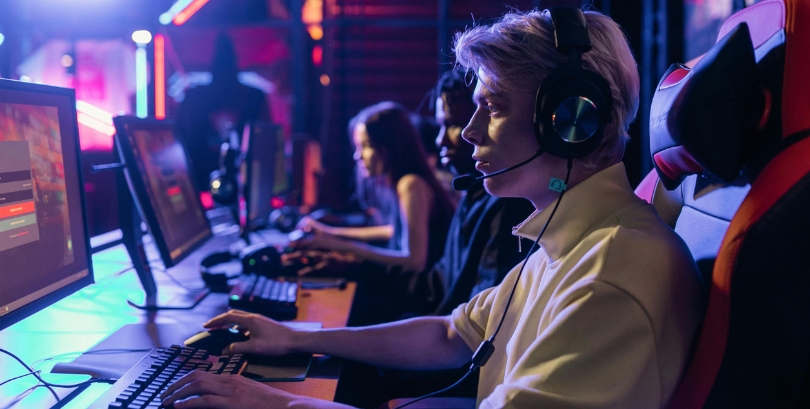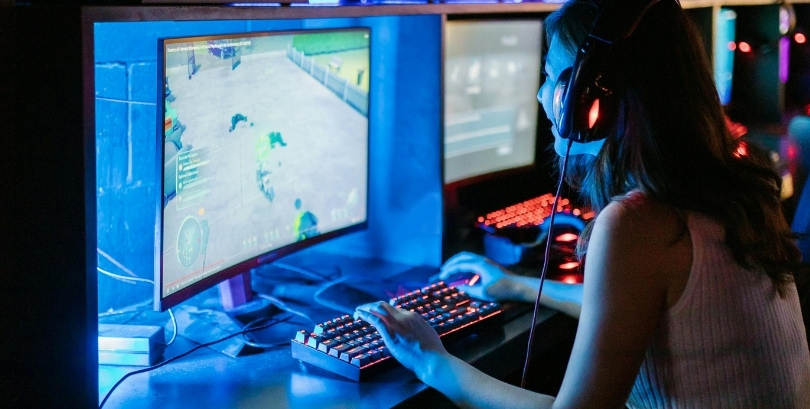Gaming Technology
Artificial Intelligence and Video Games: Can AI-Driven Worlds Evolve Without Human Input?

Artificial intelligence and video games have always shared a close bond, but the latest advances raise a fascinating question. Can AI-driven game worlds evolve independently, without constant human design? The answer lies in the emerging fusion of machine learning, neural networks, and procedural generation that transforms static digital environments into living ecosystems.
Artificial Intelligence and Video Games in Self-Evolving Worlds
In traditional design, every challenge or interaction was scripted, creating predictable experiences. Artificial intelligence has begun dismantling these limits. Procedural generation was the first breakthrough, producing expansive terrains or randomized dungeons. Now, AI systems are advancing this idea, building worlds that not only generate once but also continue adapting dynamically as players interact with them.
Reinforcement learning allows in-game agents to train themselves based on player choices. Instead of repeating predictable responses, enemies can develop entirely new tactics, form alliances, or exploit weaknesses. This constant learning creates game environments that feel less like software and more like self-sustaining ecosystems.
Smarter NPCs Through Neural Networks
Non-player characters highlight the most visible evolution in artificial intelligence and video games. NPCs once followed rigid scripts, but with neural networks, they can adapt, learn, and even remember. Imagine a merchant raising prices after noticing your buying patterns, or rival factions reshaping strategies after repeated defeats. These behaviors make every encounter personal and unpredictable.
The complexity lies in how neural models can layer memory, decision-making, and personality traits. The result is a sense of continuity, where characters evolve not only during a single play session but over time. This transforms gameplay into a unique narrative, shaped by the interplay between human players and AI systems.
Autonomous World-Building Beyond Human Input
Artificial intelligence is also changing the scale of world-building. Generative models can design entire cities, economies, and ecosystems that evolve on their own. These systems simulate aging, resource management, or political shifts without requiring developers to script every detail.
This autonomy means a game world might keep evolving even when no one is playing. Players could return after weeks to discover changing weather systems, collapsing economies, or shifting alliances among AI-driven factions. Such independent progression pushes games beyond designed experiences into spaces that feel more like alternate realities.
When Autonomy Collides with Control
The possibilities are thrilling, but they introduce challenges. If artificial intelligence and video games move toward autonomous systems, where does creative authorship lie? Developers may set the rules, but once worlds start generating outcomes even they cannot predict, the line between creation and emergence blurs.
There are also ethical concerns. NPCs that adapt to player personalities could deepen immersion but raise privacy issues. Computing demands for large-scale simulations also risk environmental strain and may limit accessibility for players without powerful hardware.
Also read: Cloud Based Gaming Services and Their Role in the Growth of Esports
Beyond Replay Value: Games That Outgrow Their Creators
AI-driven game worlds are not meant to replace human imagination but to extend it. Players are no longer just participants in pre-written stories, but agents shaping and witnessing ecosystems that grow beyond their control. Replay value becomes infinite, not because content is recycled, but because the world itself continues to evolve.
The merging of artificial intelligence and video games points toward a future where humans and machines co-create. Developers light the spark, and AI transforms it into a universe that keeps surprising its players. The real question is whether we are ready to step into digital worlds that live and change on their own.
Tags:
Artificial Intelligence and Video GamesTech TrendsAuthor - Jijo George
Jijo is an enthusiastic fresh voice in the blogging world, passionate about exploring and sharing insights on a variety of topics ranging from business to tech. He brings a unique perspective that blends academic knowledge with a curious and open-minded approach to life.


